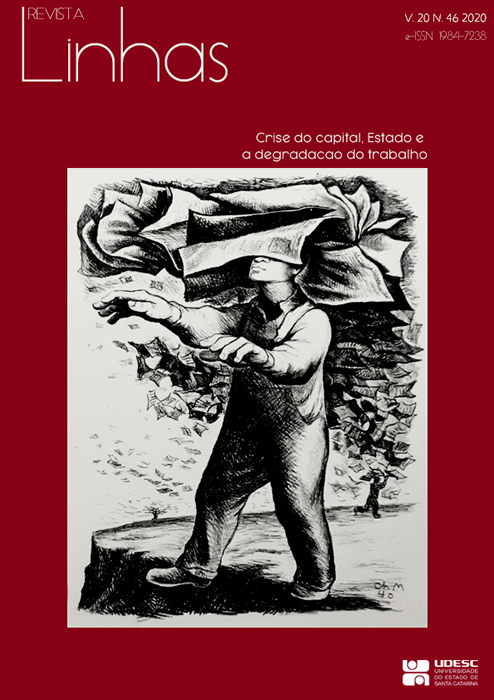The crisis of capitalism in the 21st Century
DOI:
https://doi.org/10.5965/1984723821462020016Resumo
As the world economy enters its third decade of the 21st century, the Long Depression in investment, output, and income growth seems set to continue as the profitability of capital remains near historic lows. There are some key challenges over the next 20 years: climate change and global warming, and huge inequalities which create enormous social tensions. All these factors threaten the ability of the US to maintain its hegemonic position. The rivalries between the big capitalist powers will increase, particularly between the US and China. A new globalizing wave is likely to take place, since there are still enormous human masses which can be expropriated and socially made available for the sale of labor force; and new technological innovations will always arise, providing new cycles for the expansion of value and surplus value. So, capitalism could get a further kick forward. However, imperialism is faced with two major weaknesses. The first is the tendency for the profit rate to fall, which imposes an increase in rivalry on the world market and even dangerous wars. The second is the global proletariat, which continues to grow throughout the world. Crises will reoccur at regular intervals with the accumulation of capital, and the longer capital accumulates, the more difficult it will be for it to deliver the needs and desires of humanity.
Keywords: Crises. Imperialism. Globalisation. Profitability.
Downloads
Downloads
Publicado
Como Citar
Edição
Seção
Licença
Os artigos publicados pela revista são de uso gratuito, destinados a aplicações educacionais e não comerciais. Os direitos autorais são todos cedidos à revista. Os artigos cujos autores são identificados representam a expressão do ponto de vista de seus autores e não a posição oficial da Revista Linhas ou do Programa de Pós-Graduação em Educação da Universidade do Estado de Santa Catarina.

A Revista Linhas está licenciada com uma Licença Creative Commons - Atribuição-NãoComercial-SemDerivações 4.0 Internacional.


